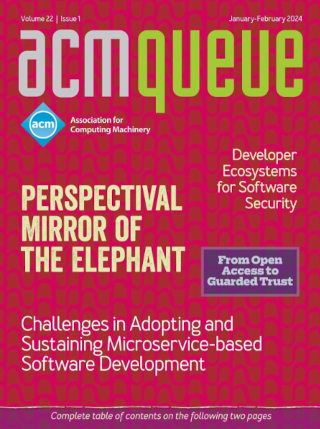
The Antifragile Organization:
Embracing Failure to Improve Resilience and Maximize Availability
Failure is inevitable. Disks fail. Software bugs lie dormant waiting for just the right conditions to bite. People make mistakes. Data centers are built on farms of unreliable commodity hardware. If you’re running in a cloud environment, then many of these factors are outside of your control. To compound the problem, failure is not predictable and doesn’t occur with uniform probability and frequency. The lack of a uniform frequency increases uncertainty and risk in the system. In the face of such inevitable and unpredictable failure, how can you build a reliable service that provides the high level of availability your users can depend on?
Best Practices on the Move: Building Web Apps for Mobile Devices:
Which practices should be modified or avoided altogether by developers for the mobile Web?
If it wasn’t your priority last year or the year before, it’s sure to be your priority now: bring your Web site or service to mobile devices in 2013 or suffer the consequences. Early adopters have been talking about mobile taking over since 1999 - anticipating the trend by only a decade or so. Today, mobile Web traffic is dramatically on the rise, and creating a slick mobile experience is at the top of everyone’s mind. Total mobile data traffic is expected to exceed 10 exabytes per month by 2017.
Rules for Mobile Performance Optimization:
An overview of techniques to speed page loading
Performance has always been crucial to the success of Web sites. A growing body of research has proven that even small improvements in page-load times lead to more sales, more ad revenue, more stickiness, and more customer satisfaction for enterprises ranging from small e-commerce shops to megachains such as Walmart.
The Naming of Hosts is a Difficult Matter:
Also, the perils of premature rebooting
The naming of hosts is a difficult matter that ranks with coding style, editor choice, and language preference in the pantheon of things computer people fight about that don’t matter to anyone else in the whole world.





